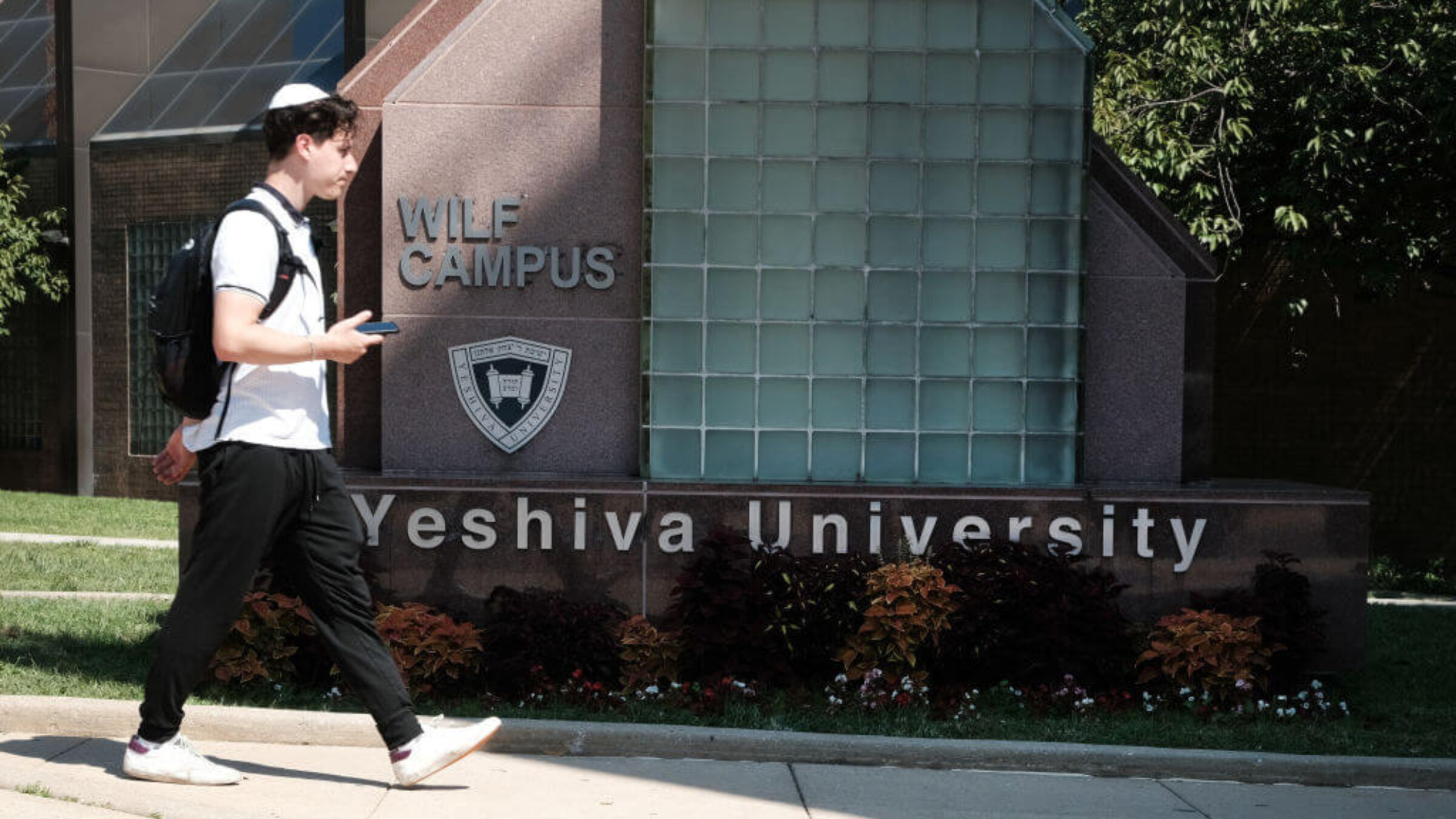SCOTUS declines to take Yeshiva University LGBTQ case — for now
Roberts and Kavanaugh joined the court’s three liberal justices in essentially saying, ‘try again later’

The men’s campus of Yeshiva University in New York City on August 30, 2022. Photo by Spencer Platt/Getty Images
The Supreme Court on Wednesday denied Yeshiva University’s request to block a lower court order that requires it to recognize a student LGBTQ club, writing that the school had failed to exhaust its options before it petitioned the highest court in the land.
In a 5-4 vote, the justices ruled that YU has “at least two further avenues” to pursue in lower appeals courts. The university seeks to overturn the June decision of a New York trial court judge, who determined that the university, because it is an educational and not a religious institution, must abide by New York City’s anti-discrimination law and recognize the club.
YU may return to the Supreme Court if it is unsuccessful in lower courts, the justices wrote in Wednesday’s decision.
As an Orthodox Jewish institution, YU has argued that forcing it to recognize the Pride Alliance, which has met informally at the school since at least 2009, is a violation of its religious rights. To the alliance, YU’s refusal deprives students of basic rights “uncontested at peer universities.”
Katie Rosenfeld, an attorney for the Pride Alliance said in a statement after Wednesday’s decision was released that YU had made an “unprecedented” and “premature” rush to the high court.
“We are confident that we will continue to overcome the administration’s aggressive litigation strategies against its own LGBTQ+ students, who choose to attend Yeshiva University because they are committed to the school’s mission,” she said. “At the end of the day, Yeshiva University students will have a club for peer support this year, and the sky is not going to fall down. No longer will students be denied a safe and supportive space on campus to be together.”
Advocates for LGBTQ youth hailed Wednesday’s ruling as a victory. “Today is a turning point for LGBTQ Jews in the Orthodox community who, for too long, have been told that their identities are not a sin, yet made to feel like their self-worth is against Jewish law,” said Rachael Fried, executive director of Jewish Queer Youth, in a statement.
Justice Samuel Alito wrote a strongly worded dissent to the majority ruling.
“The First Amendment guarantees the right to the free exercise of religion, and if that provision means anything, it prohibits a State from enforcing its own preferred interpretation of Holy Scripture,” Alito wrote. “Yet that is exactly what New York has done in this case, and it is disappointing that a majority of this Court refuses to provide relief.”
Alito was joined by Justices Clarence Thomas, Neil Gorsuch and Amy Coney Barrett. He noted that those four would likely vote to take the case if YU’s First Amendment arguments are rejected on appeal.
“Yeshiva would likely win if its case came before us,” Alito wrote.
Wednesday’s ruling vacated a temporary stay granted by Justice Sonia Sotomayor on Friday. Sotomayor, as the associate justice for New York State, could have approved or denied YU’s petition for an emergency stay, or referred it to the full court.
Arguing against YU’s petition for an emergency stay, the firm representing the Pride Alliance had written that “No ‘emergency’ exists that justifies the University’s grossly irregular procedural maneuvers around the normal state court appellate process.”
Though the removal of the temporary stay granted by Justice Sonia Sotomayor Friday means that YU is legally required to follow the New York court’s order, it was not clear what the immediate implications would be for the Pride Alliance on campus.
Attorneys from Becket Law, which represented YU in the case, did not immediately reply to requests for comment.






















